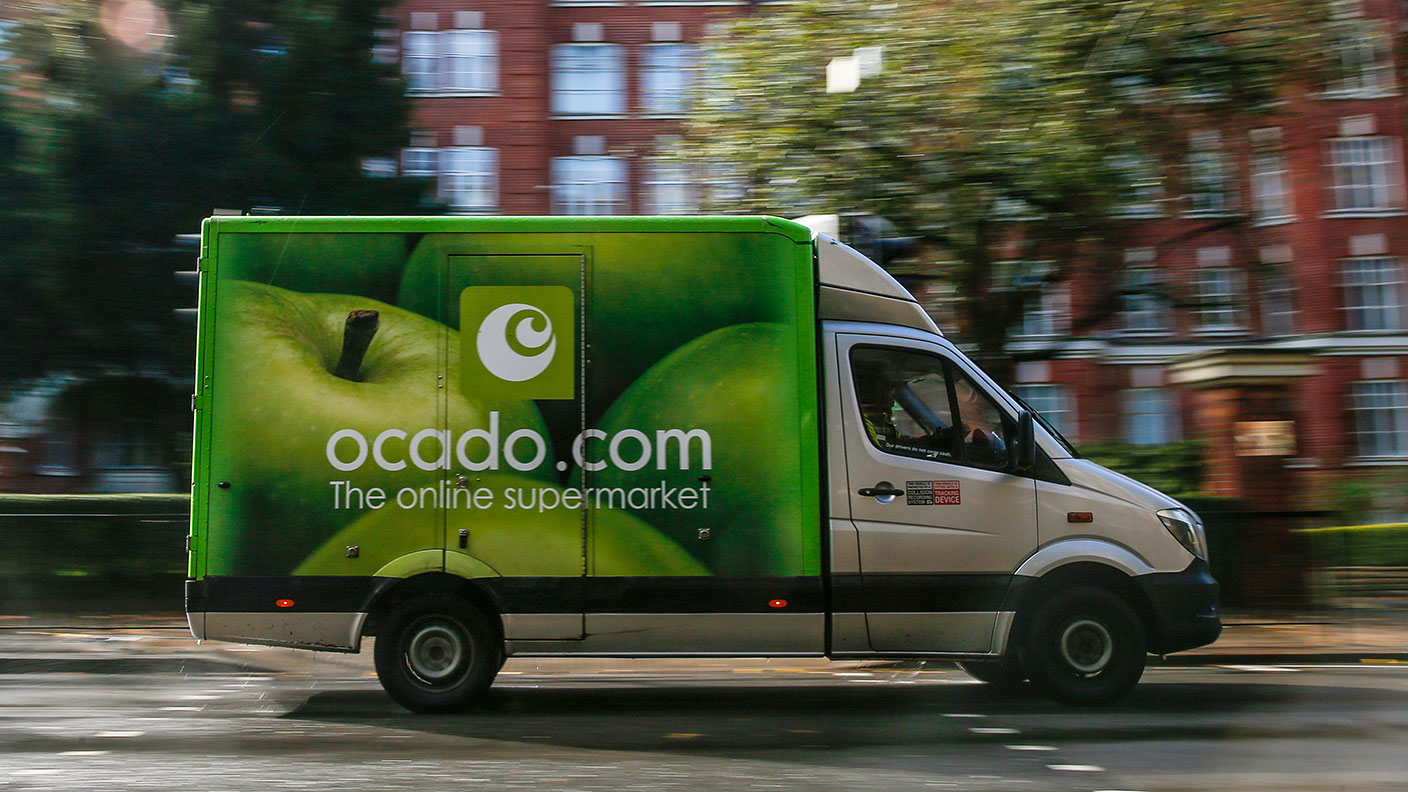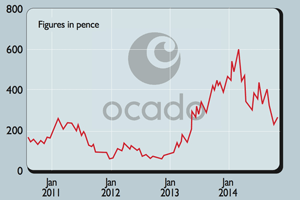Ocado IPO: Don't touch it with a bargepole
Ocado's flotation is like something out of the dotcom boom: an over-valued, loss making company in a desperate call for cash. But it's a great lesson in what to look out for in new issues, say Bengt Saelensminde.
Get the latest financial news, insights and expert analysis from our award-winning MoneyWeek team, to help you understand what really matters when it comes to your finances.
You are now subscribed
Your newsletter sign-up was successful
Want to add more newsletters?

Twice daily
MoneyWeek
Get the latest financial news, insights and expert analysis from our award-winning MoneyWeek team, to help you understand what really matters when it comes to your finances.

Four times a week
Look After My Bills
Sign up to our free money-saving newsletter, filled with the latest news and expert advice to help you find the best tips and deals for managing your bills. Start saving today!
There's something you really need to know about Ocado's share offer. You won't see it in the press, as they're looking in all the wrong places. I mentioned that I was wary about this share offer last week. Now that I've had a good look at the prospectus I'm sure.
I'm not going to talk about the concerns voiced in the media over things like fierce online competition and the fragile sourcing agreement with Waitrose. That's not the big issue. What's really of concern is that this looks more like a last ditch attempt for the founders to get something out of the business.
It's a great lesson in what to look out for in new issues.
MoneyWeek
Subscribe to MoneyWeek today and get your first six magazine issues absolutely FREE

Sign up to Money Morning
Don't miss the latest investment and personal finances news, market analysis, plus money-saving tips with our free twice-daily newsletter
Don't miss the latest investment and personal finances news, market analysis, plus money-saving tips with our free twice-daily newsletter
They want your money
Ocado wants over £400m. That's £200m for 'expanding' the business and around £200m for founders that want to bail out. It's not unreasonable to take some cash off the table, but it's hardly a sign of confidence when some founders want to dump all of their shares!
They want you to pay a dotcom-frenzied price
To value a business, you need some earnings projections. But with Ocado, it's practically impossible to make any projections. This is how I see their offer:
"We've been trading for ten years. It hasn't worked. We can grow turnover, but we just can't make a profit... at least, not one that's going to make us really rich. Now we're in trouble. We desperately need more money so we can try another idea. We're brilliant bankers, so we deserve your money. Oh, and by the way, some of our original sponsors have lost faith and want their money back... so can you pay them off too?"
The FT reports one institutional investor likening it to a "technology IPO of the late 1990s". What he's really saying is that there's no credibility for the valuation. It's all based on hope. It's like the founders are caught in a time-warp and they're still back in 2000 when they first set up the business.
The deeper you delve, the worse it gets.
They need your cash quick!
Richard Buxton, head of UK equities at Schroders says, "The Company needs the money". It looks like a desperate cash-call. A statement tucked away in the prospectus tells us that without the £200m from the share issue, Ocado may not be a going concern i.e. it could go bust.

- Discover how to profit from oil without ever owning a single barrel
- Why NOW is the best time to put a few carefully selected oil investments into your portfolio
The rotten secret at the heart of the offer...
Ocado was a terrible mistake. Believe me, no entrepreneur sets out a business plan that says it'll reach profitability in 12 to 15 years time (brokers estimate a profit somewhere between 2012 and 2015). Nobody would have leant them money on that basis.
So this is a business that went wrong. But don't expect the founders to admit that.
City bankers have big egos. These guys left well-paid jobs to start a dotcom at the height of the bubble. They want to show everyone that they're winners.
Everything else has failed, so now they want to sell the shares to us, the public. They're offering shares to us via our pension and insurance institutions and directly to Ocado employees and customers.
They're asking the latest round of mug punters to pay more than the original investors paid. This is bonkers. It's the wrong way round!
When you make a bad investment, you expect to lose money. But not these guys. They want to off-load stock onto mug punters and, on top of that, raise more cash in a last-ditch attempt to make the business work.
Will they get away with it?
I don't think that they'll get the institutional support they need for the fund-raising. They've already thrown £350m into this bottomless pit.
Now they're running out of track. There are question marks over the company's finances - and then there's the other issue over whether this outfit can take on the big boys in what is a low-margin business.
This is a lesson in why you should never trust any business plan just because it's been put together by brilliant financiers. The most important thing in any new issue is the management team. If you want an ex-banker as finance director, fine. But for heavens sake make sure the rest of the management team are from industry and understand what they're getting into.
And if I haven't been clear enough already, my advice is steer well clear of the Ocado IPO. Don't short it though! If they get the offer away, expect the price to be massaged upwards for a while after the listing.
This article was first published in the free investment email The Right Side on 12 July 2010
Your capital is at risk when you invest in shares - you can lose some or all of your money, so never risk more than you can afford to lose. Always seek personal advice if you are unsure about the suitability of any investment. Past performance and forecasts are not reliable indicators of future results. Commissions, fees and other charges can reduce returns from investments. Profits from share dealing are a form of income and subject to taxation. Tax treatment depends on individual circumstances and may be subject to change in the future. Please note that there will be no follow up to recommendations in The Right Side.
Managing Editor: Theo Casey. The Right Side is issued by MoneyWeek Ltd. MoneyWeek Ltd is authorised and regulated by the Financial Services Authority. FSA No 509798. https://www.fsa.gov.uk/register/home.do
Get the latest financial news, insights and expert analysis from our award-winning MoneyWeek team, to help you understand what really matters when it comes to your finances.
Bengt graduated from Reading University in 1994 and followed up with a master's degree in business economics.
He started stock market investing at the age of 13, and this eventually led to a job in the City of London in 1995. He started on a bond desk at Cantor Fitzgerald and ended up running a desk at stockbroker's Cazenove.
Bengt left the City in 2000 to start up his own import and beauty products business which he still runs today.
-
 Last chance to invest in VCTs? Here's what you need to know
Last chance to invest in VCTs? Here's what you need to knowInvestors have pumped millions more into Venture Capital Trusts (VCTS) so far this tax year, but time is running out to take advantage of tax perks from them.
-
 ISA quiz: How much do you know about the tax wrapper?
ISA quiz: How much do you know about the tax wrapper?Quiz One of the most efficient ways to keep your savings or investments free from tax is by putting them in an Individual Savings Account (ISA). How much do you know about ISAs?
-
 As Ocado’s troubles mount, it’s time to sell
As Ocado’s troubles mount, it’s time to sellTips Online retailer Ocado has struggled to build value for shareholders, and still isn't turning a profit. If you hold Ocado shares, now might be a good time to sell, says Rupert Hargreaves.
-
 Ocado finally takes off
Ocado finally takes offFeatures Online grocer Ocado has been a “jam tomorrow” story for years. The jam now finally appears to have arrived. Alice Gråhns reports.
-
 Ocado’s surge shows what happens when a hated asset springs a surprise
Ocado’s surge shows what happens when a hated asset springs a surpriseFeatures Shares in online grocer Ocado – hated by investors – suddenly spiked. It shows what can happen when sentiment turns, and holds a lesson for the broader UK market.
-
Ocado finally delivers a profit
News Online supermarket Ocado has finally delivered its first annual profit after 15 years.
-
 Shares in focus: Will Ocado ever make money?
Shares in focus: Will Ocado ever make money?Features Ocado's shares are pricey, but the online supermarket has promise. Should you buy in? Phil Oakley investigates.